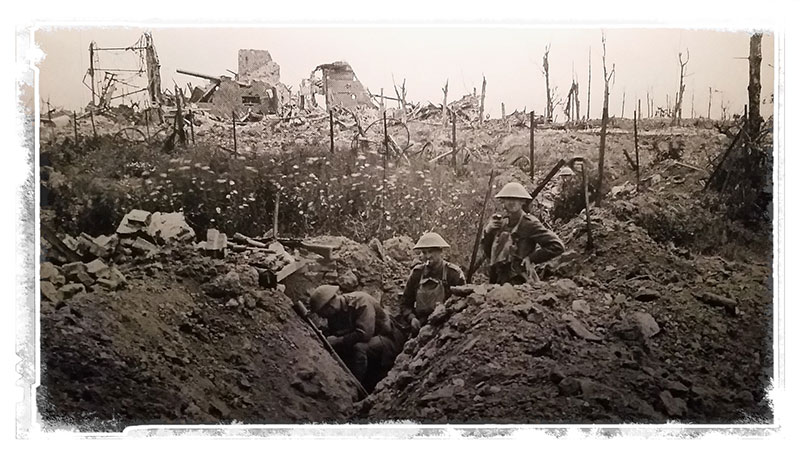The Great War
About the First World WarWorld War 1, also known as the First World War or the Great War, was a global war originating in Europe that lasted from 28 July 1914 to 11 November 1918.
What started WW1?
Since 1815 the balance of power in Europe had been maintained by a series of treaties. In 1888 Wilhelm II was crowned ‘German Emperor and King of Prussia’ and moved from a policy of maintaining the status quo to a more aggressive position. He did not renew a treaty with Russia, aligned Germany with the declining Austro-Hungarian Empire and started to build a Navy rivalling that of Britain.
These actions greatly concerned Germany’s neighbours, who quickly forged new treaties and alliances in the event of war.
On 28th June 1914 Franz Ferdinand, the heir to the Austro-Hungarian throne, was assassinated by the Bosnian-Serb nationalist group Young Bosnia who wanted pan-Serbian independence. Franz Joseph’s the Austro-Hungarian Emperor (with the backing of Germany), responded aggressively, presenting Serbia with an intentionally unacceptable ultimatum, to provoke Serbia into war.
Serbia agreed to 8 of the 10 terms and on the 28th July 1914 the Austro-Hungarian Empire declared war on Serbia, producing a cascade effect across Europe.
Russia bound by treaty to Serbia declared war with Austro-Hungary, Germany declared war with Russia, and France declared war with Germany. Germany’s army crossed into neutral Belgium in order to reach Paris, forcing Britain to declare war with Germany (due to the Treaty of London (1839) whereby Britain agreed to defend Belgium in the event of invasion).
By the 4th August 1914 Britain and much of Europe were pulled into a war which would last 1,566 days, cost 8,528,831 lives and 28,938,073 casualties or missing on both sides.
Contact Details
Get in touch
By email, contact form or telephone

